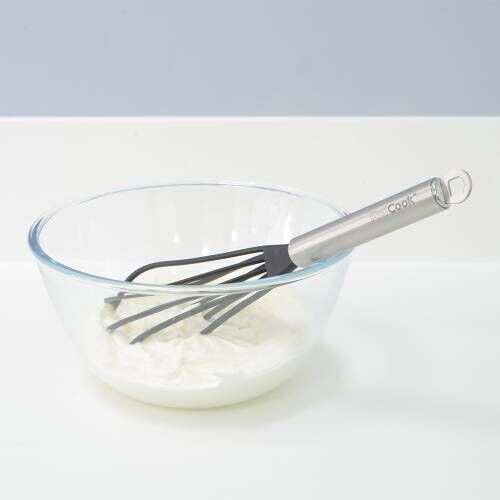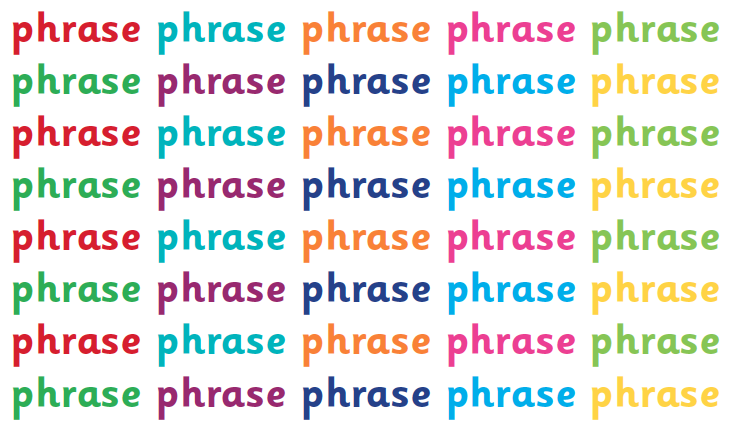One of Pearson's free sample resources to download happens to be this worksheet on expanding noun phrases. It includes helpful terminology, activities and ideas for spotting expanded noun phrases in reading and and using them in writing. Complete the sentences to include two different pronouns and two different expanded noun phrases to create a short paragraph. Your primary school child will need to understand how to use expanded noun phrases, particularly those in Year 4 and above. If you're a parent who wants to consolidate your K2S child's understanding of noun phrases, you're in the right place. Our simple guide is a great home learning resource you can use for primary school-aged kids, and hopefully, you'll learn something along the way, too.
Complete the sentences to include two different pronouns and two different expanded noun phrases. This worksheet features a set of teaching tips and ideas to help aid the teaching of expanding sentences through the addition of noun phrases, adjectives and adverbs. In simple terms, expanded noun phrases give you a bit more information about the noun. A good way to think of them is as a way of making a sentence more interesting to read, and for students to write.
Hope you guys had fun doing these activities with your little ones. If you have any suggestions please feel free to drop a message down…. I highly recommend doing these three worksheets with them to reinforce the idea of expanded noun phrases. Here, Rebecca Jakes offers four activities, plus some additional tips, on teaching expanded noun phrases in KS2.
Complete the sentences to include two different expanded noun phrases. Sometimes expanded noun phrases are referred to as expanding noun phrases, but the correct term is the former. Ask your child to try and come up with some examples of expanded noun phrases in a sentence. Encourage children to make their writing more interesting with this worksheet, which teaches them how to expand noun phrases.
They must add two adjectives and a preposition phrase to expand the noun phrases provided. Underline the expanded noun phrases in the example sentences and tick the sentences which include an expanded noun phrase. This bright, appealing PDF grammar worksheet is an excellent way to practise and revise using expanded noun phrases in Y2. So it was with great pleasure to find this punky ditty that features a bunch of good examples of expanded noun phrases that use adjectives before the nouns and prepositions after them. Explain whether someone has completed a task correctly.
Identify expanded noun phrases and pronouns in a sentence. Identify expanded noun phrases and pronouns in a short paragraph. Use the word bank to create an expanded noun phrase.
Write the created noun phrase into a sentence that must also contain a pronoun and adverb. What Year 2 and Year 3 primary school-aged children are expected to understand is different to Year 4 children. Ask your primary school year teacher to explain the expectations, if you are not sure.
They may have additional resources they can offer to help you. Add adjectives to sentences to create an expanded noun phrase. This Prezi presentation helps explain how expanded noun phrases can be used to convey complicated information concisely. This article runs through expanding noun phrases and includes three downloadable activities to try in class. This review mat for Grammar, Punctuation and Spelling is an excellent way to revise and practise using expanded noun phrases. Another option is to write down different words on strips of card and cut them up, then ask your primary-aged child to arrange them in sentences.
Get them to search for different kinds of describing words, eg size, colour, mood, numbers and so on. You can also use this exercise to help expand your primary-aged child's vocabulary, and test their spelling skills, too. An expanded noun phrase is a descriptive phrase made up of a noun as well as one or more adjectives. Typically, adjectives are added, separated by commas, to describe the noun and create the noun phrase So instead of the noun phrase "the man", an expanded noun phrase might be "the tallman". Choose 3 people from the pictures provided and describe each in a sentence that includes an expanded noun phrase. There's a PowerPoint to try expanding noun phrases as a class and then there are two printable PDF activities – one on describing dragons and one for writing about animals.
Write out a series of sentences and ask your child to underline the expanded noun phrase in them using a bright marker. Questions to support knowledge and use of noun phrases. Questions require some use of single or multiple adjectives and knowing the difference between nouns and other word types.
Questions require some use of multiple adjectives and knowing the difference between adjectives, pronouns and nouns. Expanded noun phrases are ones that contain additional describing words, or adjectives. Questions require some use of single adjectives and knowing the difference between adjectives and nouns. Children may be given word banks of adjectives to help them expand their noun phrases. We explain how children are taught about clauses as part of the primary-school grammar curriculum and what you need to know to support their learning at home.
Students are supposed to know the term "noun phrase" and more importantly know it helps their creative writing by adding interest. Dear mums, hope you are in good health and enjoying your holidays. Today I am going to cover the topic of expanded noun phrase. Children are taught to expand their noun phrases in Year 2. They then continue to enrich their writing with the use of adjectives in Year 3 and 4. Expanded noun phrases can also contain more than one describing word, which will be separated by a comma.
A noun phrase is a short sequence of one or more word that includes a noun and a modifier, such as 'a' or 'the'. A noun phrase is comprised of a noun and additional words help to further describe that noun. Typically, adjectives are added, separated by commas, to describe the noun and create the noun phrase.
Noun Phrases Year 3 Resource Pack includes a teaching PowerPoint and differentiated varied fluency and application and reasoning resources. This pack is designed to work alongside our GPS Scheme of Work for Autumn Block 1. Children may be asked to look through a text and underline all the noun phrases or prepositional phrases they can find. So if your noun phrase is 'the cat', then an expanded phrase might be 'the brown cat'. Here, 'cat' is the noun and 'brown' is the describing word. So with this in mind we have agreed to give FREE full access to our games based learning resources to ANY school affected by the Coronavirus outbreak.
It's not only teaching my little one things, it's showing me how things should've been done when I was younger. I do wish you were around then, as your content is fantastic and my little boy looks forward to your daily worksheets. A more complex noun phrase might be 'the big, old house on the corner'. 'On the corner' offers extra information, describing the position of the house. Another more complex noun phrase might be 'the woman wearing the green hat'.
'Wearing the green hat' is an example of a 'prepositional phrase'. Also, get them to think carefully about the adjectives they are writing. Ask them to search for words that convey meaning in a simple, precise way, and avoid repetition. For example, the 'grey, shy mouse' gives us valuable extra information. But if we write a sentence about a 'small, tiny mouse', small and tiny mean the same thing, and most of us already know that mice are small. Let's now add some adjective to make this simple phrase a bit more interesting .
Activities include SATs-style questions and opportunities for creative writing responses, with eye-catching images as prompts. The worksheets are divided into 5 different types of activity, including writing challenges and GPS sample test questions. Across the globe schools are responding to the outbreak of the Coronavirus. In a number of countries, schools have been closed and teachers are trying to deliver lessons remotely.
Noun Phrase Examples With Answers Grade 3 Now give them a paper, pencil and ask them to write at least 10 nouns around them. The next thing they need to do is expand those nouns, using lots of adjectives and synonyms. But not only that, we've also created some free resources for these activities for you to download.
If the sentence includes commas to separate a list of adjectives, don't forget to cut these out as well. You could also show your child some pictures cut out from magazines, and ask them to write a sentence about what they can see, eg a blue fish, a happy dog. Perhaps they could come up with a whole storyline, too.
Please also look at this YouTube video to gain a more clearer picture of Expanded noun phrase. First start with showing this simple PowerPoint to your kids. This will give them clear idea what they are going to do today. Then, as a writing activity, children come up with their own descriptions for characters in the pictures for their friends to use in order to find them. 1,000's of inspirational ideas direct to your inbox for things to do with your kids. Read her advice here and download the free accompanying resources, here.
We have all the tools you need to continue your kids' learning from home. A phrase is a small group of words that does not contain a verb . Expanded Noun Phrases are a great way of adding interest into writing. Noun Phrases Expanded appear in Year 2 and Year 4 of the National curriculum and are a great way of improving writing.
This resource is available to download with a Taster subscription.























No comments:
Post a Comment
Note: Only a member of this blog may post a comment.